Current Actions
-
Turn off the tap on PFAS in Massachusetts!
It’s time for Massachusetts to join other states around the country and protect residents from toxic PFAS! If we want to get PFAS chemicals out of the water, we need to stop making, consuming, and disposing of items containing these dangerous "forever chemicals." Please let your State Representative and Senator know that you want them to take action on PFAS by the end of July!
PFAS have already contaminated public water systems in 96 cities and towns in Massachusetts. These chemicals are incredibly harmful, increasing the risk of cancers, liver disease and more.
H4486 An Act to protect Massachusetts public health from PFAS (sponsored by Senator Julian Cyr and Representative Kate Hogan) bans PFAS in several categories of consumer products*, prevents industrial discharges of PFAS to water, and sets up a fund to help test and treat private wells and public water systems for PFAS.
*Bans PFAS in food packaging, children’s products, personal care products, textiles, upholstered furniture, car seats, rugs and carpets, firefighters personal protective equipment, and firefighting foam and also authorizes the Department of Public Health to add additional products
It also requires businesses to disclose if they add PFAS to consumer products and requires the state to phase out the practice of applying sludge from wastewater treatment plants to farmland.
PFAS pose a particular risk to our children and families because they build up over time in our bodies and the environment, so the more they are used, the greater threat they pose. We know we will need to clean up the damage already done – but unless we stop using them, the health and environmental risks will continue to compound. Passage of the bill could not be more timely.
Take Action! Contact your MA legislator below and ask them to call for a vote this session on the Act to protect Massachusetts public health from PFAS. Please consider inserting your own subject line AND adding a sentence or two about why this issue is important to you personally. Legislators tell us that personalized emails are particularly impactful.
To find your state legislators go to this link here: https://malegislature.gov/Search/FindMyLegislator
When you finished emailing your legislators please fill out the form so we are able to track how many folks are reaching out to their legislators, thank you! -
Virtual Panel Webinar: The Future of Superfund Sites
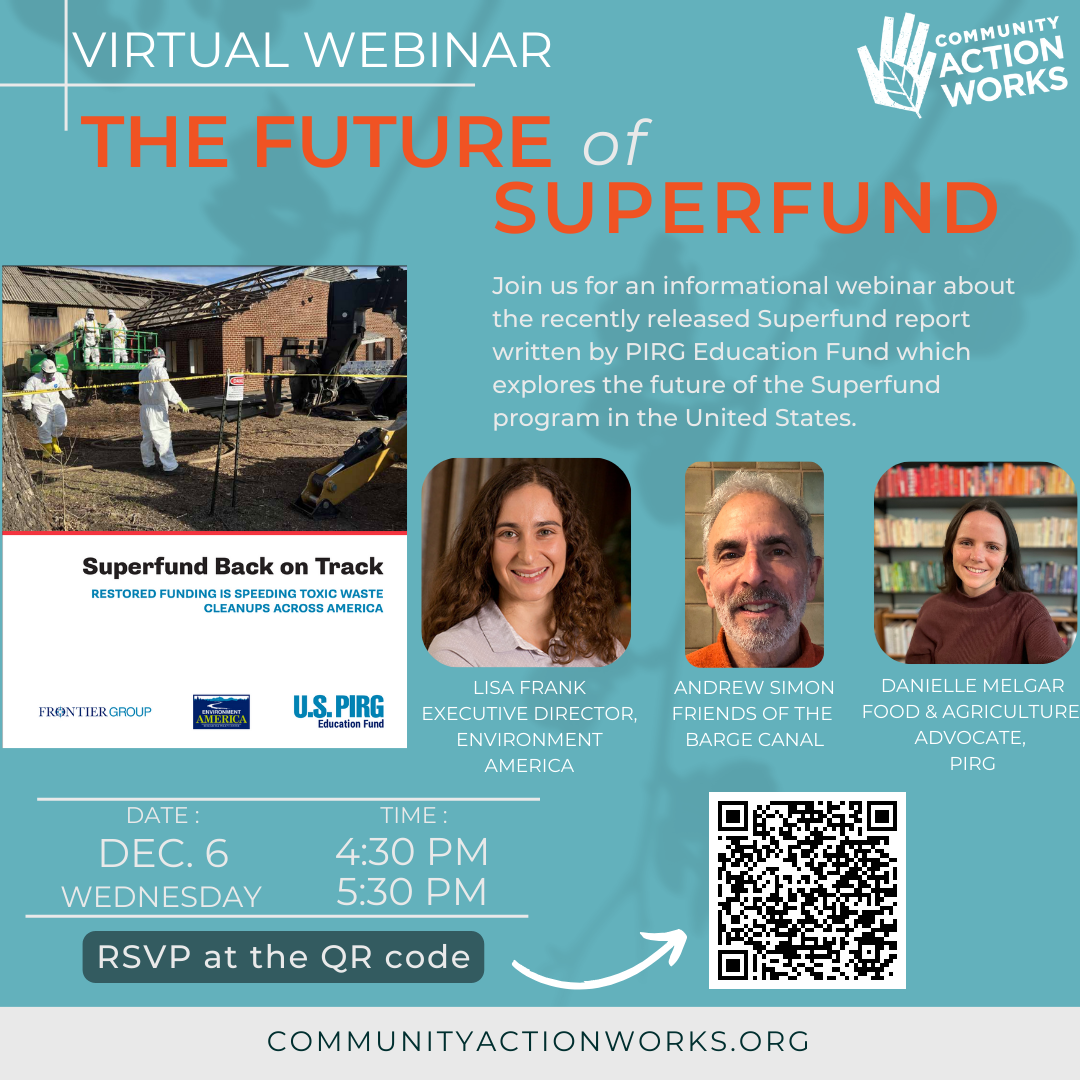 EVENT DETAILS
EVENT DETAILS
When: Wednesday, December 6, 2023 from 4:30-5:30 PM ET
Where: Zoom Video Conferencing
What: Too often communities are left cleaning up the mess in their own backyards that polluters leave. A recent law has helped change that.Join Community Action Works and USPIRG Education Fund to talk about how the reinstatement of the “polluter pays” tax has invigorated the Superfund program allowing more toxic sites to be cleaned up including sites in the Northeast.
Join the virtual panel to learn more about the report and its findings, the organizing work around Superfund sites, and the policy surrounding the Superfund program. After panelist presentations, we will have a Q&A session where you can ask questions to the panelists and learn more about the program.
Panelists include:
- Lisa Frank - Executive Director, Environment America
- Danielle Melgar - Food & Agriculture Advocate, PIRG
- Andrew Simon - Friends of the Barge Canal, Burlington, Vermont
-
Joint Testimony to help pass An Act to protect Massachusetts public health from PFAS, S1356 & H2197
Have you been affected by PFAS in your well or water system? Do you want legislators to do more to protect you?
Here’s your chance!An Act to protect Massachusetts public health from PFAS (S1356/H2197) is a bill to:- Ban PFAS in most consumer products
- Establish a fund to help communities pay for PFAS clean up
- Require industries to control releases of PFAS to water
The Alliance for a Healthy Tomorrow, a coalition including MASSPIRG, Clean Water Action, Massachusetts Sierra Club, Community Action Works and 60 other local environmental and public health organizations in Massachusetts working to pass this bill. We need your help! We are asking people to sign onto a joint testimony in support of the bill. -
Take action: Tell your legislators to turn off the tap on PFAS
PFAS ( A class of toxic chemicals known as per- and polyfluoroalkyl substances) don’t break down in the environment, earning them the nickname “forever chemicals.” They are used to make products stain proof, water resistant and non-stick. Due to their widespread use in everything from clothing, to cookware, food packaging, paints, carpets, firefighting foam and more. These toxic chemicals can now be found almost everywhere across our country. Multiple studies link PFAS, even in relatively small amounts, to a wide variety of health problems including immunosuppression, low birthweight, liver disease, and testicular and kidney cancer.
People are exposed to PFAS by drinking and eating food and water that has been contaminated, and using products with PFAS. PFAS in products escapes into air and dust, which we breathe in. When products are manufactured and disposed of, PFAS leach into the soil, groundwater and drinking water. In Massachusetts, at least 169 public water systems in 95 cities and towns, and an unknown number of private wells, have exceeded the state’s legal limit (Maximum Contaminant Level) for PFAS.
The best way for us to combat the widespread exposure to and contamination of PFAS, is to turn the tap off of PFAS going into our communities and environment by banning products that contain these toxic chemicals. States like Maine, New York, California, Pennsylvania and Colorado already have implemented PFAS bans in various consumer products. Now it’s Massachusetts’ turn to do the same.
The Massachusetts legislative session has just begun, and already there are 3 bills that will significantly reduce toxic PFAS in our communities.
SD2053, HD3324 (Sponsored by Sen. Julian Cyr, Rep. Kate Hogan) This bill phases out PFAS in most consumer products, cuts industrial discharges of PFAS to water, and sets up a fund to help test and treat private wells and public water systems for PFAS.
SD1473, HD2081 (Sponsored by Sen. Cindy Friedman, Rep. James Hawkins) This bill bans PFAS in children’s products. It also requires manufacturers to disclose toxic chemicals added to children’s products and sets up a structure for evaluating chemicals and banning the most harmful chemicals from continued use in children’s products.
SD211, HD1171 (Sponsored by Sen. Jo Comerford, Rep. Paul Schmid) This bill requires testing of biosolids (treated sewage) for PFAS before they are sold or distributed to be used as fertilizer. It also sets up a fund to support farmers who have high PFAS levels in the soil or water at their farms
Take Action! Ask your legislator to cosponsor these 3 bills to help our state turn off the tap and stop the flow of toxic PFAS into our communities. If your legislator is already a sponsor, do still send a thank you!
-
Designate toxic PFAS under Superfund
You have probably heard about PFAS - the toxic chemicals used in non-stick pans, rain jackets, fire-fighting foams, and even children’s toys. PFAS have also contaminated the drinking water of millions of Americans across the nation.
PFAS are linked to serious health risks, including liver damage, birth defects and cancer. To make matters worse, PFAS don’t break down in our bodies or in the environment. That’s why they’re often called “forever chemicals.”
The U.S. Environmental Protection Agency (EPA) announced in August that it was moving to designate two PFAS chemicals - PFOA and PFOS - as hazardous under the Superfund law. That means that PFAS manufacturers will have to pay for releasing untold amounts of toxic forever chemicals into the environment.
We have an urgent opportunity to hold polluters financially accountable for cleaning up their PFAS mess at 180 Superfund sites across America. That’s why it’s so important that Administrator Regan of the EPA hears from you. -
Protect NH Waters—Overturn Governor's Veto of HB1454!
The New Hampshire House and Senate committed to protecting NH waters statewide by passing HB1454 with overwhelming, bipartisan majorities. The bill will buffer our groundwater and water bodies from predictable landfill contamination, using a common, science-based setback for new landfills.
The status quo and veto of HB1454 will ensure that chemical pollutants - including PFAS and other forever chemicals - will leak and seep to ruin lakes, rivers, and public and private wells. HB1454 ensures that new landfills will be safely sited, avoiding the gravel and bedrock formations that quickly move contaminants to nearby surface water bodies.
The vast majority of land in New Hampshire is hydrogeologically suitable for landfill siting becuase it lies over the type of soils that transmit groundwater slowly towards our nearby lakes and rivers. HB1454 is only a problem for developers attempting to site a landfill in the sand and gravel groundwater formations that quickly transmit toward nearby surface water bodies.
That is why we are calling on our New Hampshire legislators to vote and overturn Governor Sununu's veto of HB1454 to ensure that our state protects our precious waters - for safe drinking and recreation, for public and environmental health. -
Tell the Department of Energy: Make furnaces more efficient
The Department of Energy has proposed the first meaningful update in over 30 years to efficiency standards for furnaces and boilers. Urge them to enact strong efficiency standards.
-
Take action: Tell your legislator to ban PFAS in Massachusetts!
While Massachusetts already has some of the strictest PFAS regulations in the country, elevated levels of PFAS have been found in 145 public water systems across Massachusetts, as of July 2022. This shows that we have to ban PFAS now, not later. We need to eliminate PFAS in most products by 2030, starting with food packaging, textiles like carpets and rugs, personal care products, children’s products, and cookware.
We have an opportunity to take strong action on PFAS here in Massachusetts before the end of the legislative session, July 31, 2022. We are working hard to pass these 3 bills banning PFAS in food packaging, consumer products and firefight protective gear. All 3 bills have won passage from their committee currently pending further action, and they have passed in other other states. Even if the bills don't pass this summer, we know they will come to a vote next legislative session so everything we do builds towards the future. The longer we wait, the more contamination we will have to clean up.
In order for our legislators to listen to us, they need to know that there is widespread support for this issue. So take action by signing our petition urging your legislators to support these 3 bills banning PFAS in food packaing, consumer products and firefight protective gear. -
Take action to help pass the PFAS Action Act
Currently there is a comprehensive national PFAS bill called the PFAS Action Act (H.R. 2467), which just added a strong amendment to ban PFAS in food packaging, that is headed to the Senate for a vote. As expected, the chemical industry is pushing back on this specific amendment and is actively lobbying against it. Please sign our petition to urge your senator to vote yes. At a time when so many of the communities that we work with are fighting local PFAS contamination, this is one way we can help strengthen their efforts.
Every person should feel confident that the water coming out of our taps is both clean and safe. Unfortunately, the drinking water of millions of people across the nation is contaminated by PFAS ( A class of toxic chemicals known as per- and polyfluoroalkyl substances), which PFAS doesn’t break down in the environment, earning them the nickname “forever chemicals.” Due to their widespread use in everything from non-stick pans to firefighting foam, these toxic chemicals can now be found almost everywhere across our country. Multiple studies link PFAS, even in relatively small amounts, to a wide variety of health problems including immunosuppression, low birthweight, liver disease, and testicular and kidney cancer. Moreover, the health impacts of PFAS are magnified because the chemicals persist in the environment indefinitely and many of them accumulate in the food chain.
Allowing the widespread use of toxic chemicals that last forever threatens the safety of our drinking water. That’s why we’re urging Congress to act now – to move away from PFAS to safer alternatives and to strictly limit exposures and health damage as long as these chemicals remain in our environment.We need your help to pass the PFAS Action Act through the Senate and beyond without this amendment being weakened or omitted to protect everyday Americans. You can help by signing our petition to urge your Senators to support this bill with the added amendment to ban PFAS in food packaging.
-
Take action to Save Cape Cod Bay
Holtec International, the company decommissioning Plymouth's Pilgrim Nuclear Power Station, has proposed to dump millions of gallons of radioactive waste water from the now-closed Station into Cape Cod Bay. This is a huge threat to the environment and public health for Massachusetts residents.
To have your voice be heard, sign on and join the fight to save Cape Cod Bay!
Save Our Bay, a stakeholder coalition of conservation groups, industry groups, local leaders, and concerned citizens, is working on the ground and rallying communities around the need to stop Holtec’s plan to dump radioactive waste water into the bay.
It will take massive public pressure to halt Holtec and we need your help. Sign the petition today asking Governor Charlie Baker to enforce current state regulations that prohibit Holtec's planned discharge of Pilgrim's radioactive water into Cape Cod Bay.
We are making progress, Attorney General Maura Healey has pledged to block the dumping, along with other supporters, groups and organizations who have also joined the call listed below:- Senator Ed Markey
- Senator Elizabeth Warren
- Representative Bill Keating
- 20 towns on the Cape and Islands plus Duxbury and Scituate
- Conservation Law Foundation
- Herring Pond Wampanoag
- Plymouth Board of Health
- MA Seafood Collaborative
- Massachusetts Association of Realtors
- Duxbury Board of Health
- Cape Cod Commercial Fishermen's Alliance
- Association to Preserve Cape Cod
- MA Lobstermen's Association
- Plymouth Cruises
- TAC3-RORG:ORGANIZATION-0622+EM7:00L:0BH-OOO TAC [ mini subgrants ]
-
Take Action: Urge your U.S. senators to support the PFAS Action Act
Toxic chemicals called PFAS (per- and polyfluoroalkyl substances) have contaminated waterways across the country, endangering up to 110 million Americans.
To protect public health and our waterways, we're calling on the U.S. Senate to pass the PFAS Action Act, which would require the EPA to limit dumping of PFAS into our waterways and place a moratorium on new PFAS chemicals. Send a message to your senators today. -
Take Action: Urge your U.S. senators to support the PFAS Action Act
Toxic chemicals called PFAS (per- and polyfluoroalkyl substances) have contaminated waterways across the country, endangering up to 110 million Americans.
To protect public health and our waterways, we're calling on the U.S. Senate to pass the PFAS Action Act, which would require the EPA to limit dumping of PFAS into our waterways and place a moratorium on new PFAS chemicals. Send a message to your senators today. -
No Landfill Leachate Pollution in Montpelier
The Vermont Agency of Natural Resources (ANR) is reviewing a draft permit to allow a significant increase in the garbage juice (leachate) from Vermont's landfill in Coventry from going through our waste water treatment plant in Montpelier (24,000 gal/day to 60,000 gal/day) and discharged into the Winooski River, to go into Lake Champlain. This leachate has many toxic chemicals in it, including PFAS, a toxic "forever" chemical known to cause kidney disorders, cancers, reproductive disorders, and more.
The permit also requires Casella to propose a pilot project to test technology that will pretreat the landfill leachate to remove PFAS. This pilot project will be treated as a separate permit application. Once approved, Casella will operate the pilot project for roughly a year. After that year, the Department will evaluate the pilot project and consider whether the technology should be scaled up to “full implementation.”
Essex and Newport, Vermont have been taking this leachate, but are no longer taking it because of the environmental health concerns of PFAS in their communities.
We're calling on the Montpelier City Council to comment against this draft permit by the November 8th deadline and to speak out against the permit at the October 28th hearing at the ANR Annex Building, 5:30-7:30. (More information and where to submit comments here.) The Montpelier City Council can also commit to not take the landfill leachate at any time, and we are asking them to make this commitment as well and to organize with other cities that are permitted to take this landfill leachate. Please sign on below to ask the Montpelier City Council to do so.
-
No Landfill Leachate Pollution in Montpelier
The Vermont Agency of Natural Resources (ANR) is reviewing a draft permit to allow a significant increase in the garbage juice (leachate) from Vermont's landfill in Coventry from going through our waste water treatment plant in Montpelier (24,000 gal/day to 60,000 gal/day) and discharged into the Winooski River, to go into Lake Champlain. This leachate has many toxic chemicals in it, including PFAS, a toxic "forever" chemical known to cause kidney disorders, cancers, reproductive disorders, and more.
The permit also requires Casella to propose a pilot project to test technology that will pretreat the landfill leachate to remove PFAS. This pilot project will be treated as a separate permit application. Once approved, Casella will operate the pilot project for roughly a year. After that year, the Department will evaluate the pilot project and consider whether the technology should be scaled up to “full implementation.”
Essex and Newport, Vermont have been taking this leachate, but are no longer taking it because of the environmental health concerns of PFAS in their communities.
We're calling on the Montpelier City Council to comment against this draft permit by the November 8th deadline and to speak out against the permit at the October 28th hearing at the ANR Annex Building, 5:30-7:30. (More information and where to submit comments here.) The Montpelier City Council can also commit to not take the landfill leachate at any time, and we are asking them to make this commitment as well and to organize with other cities that are permitted to take this landfill leachate. Please sign on below to ask the Montpelier City Council to do so.
-
Fix the Grid: NO to Fossil Fuels, YES to a Just & Democratic Energy Grid

The way ISO-NE controls our regional electricity market keeps us hooked on polluting fossil fuels. The result is that Black, Indigenous, communities of color and poor communities bear an unjust burden of fossil fuel pollution. This is thwarting state efforts to reach our mandated clean energy goals.
We need an energy grid that works for all of us and moves us to the clean, local, renewable energy system that we need.
We’re calling for ISO-NE to work with states and communities to build a just and democratic energy grid that:- Stops propping up dirty energy electrical generation sources for use in New England;
- Transitions to 100% renewable energy through demand reduction and conservation, electrification and expanding clean, local, safe renewable energy sources;
- Encourages small-scale and decentralized energy production and storage that protects our air, water, soil, forests, environment, and communities;
- Is governed transparently and democratically with community input on infrastructure siting; and
- Is affordable and accessible for all.
-
Deny the Permit for Landfill Next to Forest Lake State Park, NH
Right now, a landfill is proposed next to Forest Lake State Park in Dalton, NH, in the Ammonoosuc River watershed. This landfill would destroy 17 acres of wetlands alone.
But one of the biggest fears is that when this landfill leaks—as all landfills eventually do—it could pollute Forest Lake State Park, a well-loved park that neighbors have been enjoying for generations. It also threatens the Ammonoosuc River and downstream communities’ water supplies.
That’s why we need to call on the NH Department of Environmental Services to deny the permit to this dangerous landfill. Send a letter to DES by September 13, 2021 to make your voice heard!
-
Deny the Permit for Landfill Next to Forest Lake State Park, NH
Right now, a landfill is proposed next to Forest Lake State Park in Dalton, NH, in the Ammonoosuc River watershed. This landfill would destroy 17 acres of wetlands alone.
But one of the biggest fears is that when this landfill leaks—as all landfills eventually do—it could pollute Forest Lake State Park, a well-loved park that neighbors have been enjoying for generations. It also threatens the Ammonoosuc River and downstream communities’ water supplies.
That’s why we need to call on the NH Department of Environmental Services to deny the permit to this dangerous landfill. Send a letter to DES by September 13, 2021 to make your voice heard!
- Deny the Permit for Landfill Next to Forest Lake State Park, NH
-
Opt Out of the $5k Challenge Campaign
Fill out this form and we'll stop sending you emails about our campaign to unlock $5k in bonus funds. You'll keep getting our regular updates.
-
Opt Out of the $5k Challenge Campaign
Fill out this form and we'll stop sending you emails about our campaign to unlock $5k in bonus funds. You'll keep getting our regular updates.
-
Take Action: Landfills don’t belong next to NH state parks
All landfills leak, and when they do, they pollute our water and our environment. Landfills also release foul odors into the air.
Landfills don’t belong next to state parks. That’s why we’re calling on our representatives to support HB177, a bill that would prevent the siting of landfills within two miles of state parks.
Now more than ever, we must protect our valuable green spaces in the face of pollution. Send your representatives a letter today to keep our state parks safe from landfills!
-
Protect Maine's Air from Oil Tank Emissions
Nearly two years ago, South Portland neighbors found out that Global Partners—the energy company that owns 12 of the 120 oil tanks in the city—had been exceeding the legal limit for air pollution. Now, they’re fighting for better protections to keep pollution out of our air, and you can help.
We need real action. Urge the Environment and Natural Resources Committee to take legislative action and pass real air quality measures that protect people, not polluters.
If you live in South Portland, please share your personal story. Your comment is more powerful if you speak from your experience! (Comments from people across Maine are great, too).
A copy of your comments will also be sent to Protect South Portland, the community group fighting for clean air in response to the South Portland oil tank emissions. By commenting you give them permission to share quotes from your comment in their advocacy.
-
Pass the Next-Generation Roadmap Climate Bill by January 29
Governor Baker vetoed the Next-Generation Roadmap Climate Bill, a bill that would have codified environmental justice into law and included important next steps on addressing the climate crisis.
We’re disappointed in the governor’s veto. But, there’s still a chance to get this bill passed this session.
Legislators have already refiled the bill, and we’re calling on our representatives to support them in passing this bill again and overriding the governor’s veto if necessary. But we only have until Friday to make this happen, so your representatives need to hear from you today.
Personalized emails have a bigger impact. Please edit the sample letter to share why environmental justice and taking action on climate is important to you.
-
Tell Governor Baker to sign the climate bill today!
The House and the Senate have both passed the climate Roadmap Bill (S.2995) and now this bill is sitting on Governor Baker’s desk. Now, he needs to hear from you.
This bill includes important steps forward. First, it codifies environmental justice into law. This is a critical step to stop polluters from loading pollution into Black, Indigenous and communities of color and poor communities, and comes after years of organizing by our partners at environmental justice groups across the state.
The bill also includes emissions goals for 2030, 2035, 2040, and 2045 to keep us on track to reduce fossil fuel pollution across the state.
-
Make this climate bill stronger
The climate crisis is happening now. So we need change now.
And right now, an important climate bill passed the House and the Senate and is sitting in a conference committee. But you can make this bill stronger.
It’s time to tell your representatives to make sure this bill comes out of committee even stronger than before. Send a letter to the conference committee and call on them to pass this important bill (H.4933/S.2500).
-
Massachusetts: Let's Plan for Zero Waste
When our trash doesn’t get reduced, reused or recycled, people living next to landfills and trash incinerators pay the price.
The state is drafting a 10-year plan for how we’ll deal with our trash, and communities from across the state are coming together to make sure that plan moves us towards zero waste solutions.
Join us in calling for a better 10-year plan for dealing with our trash! Send a letter to the Department of Environmental Protection (DEP) today.
-
Protect the health of victims of PFAS drinking water contamination
Neighbors across New Hampshire have been drinking poisoned water.
Now, Governor Sununu is considering signing a bill that would get our neighbors access to medical monitoring—which is the best chance we have at protecting poisoned families’ health.
Send a letter to Governor Sununu urging him to sign this bill into law and protect our neighbors’ health.
-
No to Pipelines, YES to Clean Energy
Northeastern states are national leaders on energy, making substantial progress in transitioning away from polluting sources of power to renewable energy and energy efficiency Now, our region is poised to invest in new energy infrastructure to replace retiring dirty power plants.
We call on our legislators to adopt energy policies that stop fossil fuel subsidies, support local renewable energy resources, keep energy dollars in our communities and create good, green jobs and protect our region from climate change and pollution.
-
Protect Pollinators in the Northeast
We can make the Northeast the leader in taking action to protect bees by curbing the use of bee-killing neonic pesticides.
There are already multiple legislators in every state signed ready to take action. We just need to show them the public is on their side.
Send an email to your legislator today.
-
Stop the pipelines!
Massachusetts has already made strides in retiring dirty energy sources and stopping new ones from being built. We have already stopped proposals to build almost 100 miles of new pipelines in our state, but we know the industry is coming back with more.
The choice is clear. Oil and gas pipelines tear up protected land and threaten our drinking water, and we can’t afford to turn back the clock.
Tell Governor Baker to stay strong on clean energy and oppose any new pipelines in our state.
-
Protect Our Drinking Water from Toxics
I support a strong, enforceable national drinking water standard to require cleanup of PFAS (per- and polyfluoroalkyl substances) contamination and restore safe drinking water to every community affected by this toxic crisis.
PFAS are estimated to be in the drinking water of 110 million people in the U.S. alone. These chemicals are linked to cancers, kidney disorders and decreased immunity. Despite this, there is no national standard for how much of these chemicals can be in water.
I support a 1ppt MCL for total PFAS chemicals to protect our drinking water from this toxic contamination.
-
Take the pesticide-free pledge!
Pesticides harm more than the weeds and pests they’re designed to kill. Chemical pesticides cause cancer, kidney and liver damage and developmental problems and kill the pollinators we rely on to keep our food system and ecosystem healthy.
I pledge to use safe, non-toxic, organic landcare practices that protect our pollinators, health and environment. I believe that a toxic-free future is possible!
-
Send a Letter for Climate Legislation in Mass.
This past year, leaders in the Mass Power Forward coalition we co-founded five years ago have been pushing for climate legislation and environmental justice in Massachusetts.
Now, two of the bills we’ve been working for are stuck in committee. These bills are An Act Re-powering Massachusetts with 100% Renewable Energy (S.1958/H.2836) and An Act to Promote Green Infrastructure and Reduce Carbon Emissions (H.2810).
Send a letter to your representative and ask them to move these important climate bills out of committee.
-
Protect Our Drinking Water from Toxics
Everyone deserves clean water. But that isn’t the case for communities across the country whose water is contaminated by the toxic Teflon chemicals known as PFAS.
PFAS, or per- and polyfluoroalkyl substances, are found in everyday products like non-stick Teflon pans along with firefighting foam used at military bases across the country. These chemicals are linked to kidney disorders, cancers and other serious health conditions and are estimated to be in the drinking water of over 110 million people in the U.S. alone.
It’s time for real action on PFAS. We are calling for a strong, enforceable national drinking water standard to require cleanup of PFAS contamination and restore safe drinking water to every community affected by this toxic crisis. -
Hold Global Partners Accountable for Air Pollution in South Portland, Maine
 It was just over a year ago that neighbors in South Portland, Maine found out that Global Partners—the energy company that owns 12 oil tanks in the city—had been exceeding the legal limit for air pollution.
It was just over a year ago that neighbors in South Portland, Maine found out that Global Partners—the energy company that owns 12 oil tanks in the city—had been exceeding the legal limit for air pollution.
Now, the Maine Department of Environmental Protection (DEP) is set to review a new permit from Global Partners—this time allowing pollution five times higher than currently permitted.
Submit a comment to the Maine DEP calling on them to protect our air quality and hold Global Partners accountable for their pollution.
-
Stop Broadcast Pesticide Spraying Across Massachusetts
Right now, a bill before our legislators could allow broadcast spraying of toxic pesticides across Massachusetts. At a moment when public health is already at risk from COVID-19, Governor Baker is proposing unrestricted spraying of toxic pesticides, which can harm our immune and respiratory systems.
Governor Baker is proposing this unrestricted spraying of these harmful chemicals to control viruses that can be spread by insects like mosquitos and ticks. But rather than taking proactive measures to address mosquito breeding at the source, the proposal only puts a toxic band-aid on the problem.
Send a letter today to protect our health and environment from unrestricted spraying of toxic pesticides. Join us in calling on our legislators to sign on to a letter to reject this bill unless significant changes are made to protect public health. Deadline is Wednesday, May 13!
-
Free Country to keep him safe from COVID-19
 Michael Mauney, aka Country, has pre-existing health conditions that put him at extremely high risk if he were to come down with COVID-19.
Michael Mauney, aka Country, has pre-existing health conditions that put him at extremely high risk if he were to come down with COVID-19.
He’s imprisoned at MCI-Norfolk where he's unable to take any of the necessary precautions, like practicing physical distancing, to keep him safe. Prisons are breeding grounds for infectious disease. If anyone in the prison comes down with COVID-19, he is likely to get it, and his risk is high.
Country needs to be released on parole immediately because of his vulnerability to COVID-19. Send an email to District Attorney Rachael Rollins to demand his release.
-
Get the Lead Out of New Hampshire Schools
.jpg) Our state has already taken big steps to protect children’s health from lead. Last summer, we won universal lead testing for all children that requires schools to test sinks and water fountains for lead more regularly.
Our state has already taken big steps to protect children’s health from lead. Last summer, we won universal lead testing for all children that requires schools to test sinks and water fountains for lead more regularly. But, under the law, schools are only required to install new plumbing if lead is found to be above 15 parts per billion (ppb)—which is 15 times higher than recommended by the American Academy of Pediatrics.
Send a letter to the Senate Committee on Health and Human Services to support SB 599, a bill that will protect children from lead-contaminated water in schools and childcare centers.
-
Get ‘forever’ chemicals out of Massachusetts
PFAS are the toxic ‘forever’ chemicals found in Teflon, raingear, firefighting foam, and likely in the drinking water of 110 million people in the U.S. alone. These toxic chemicals cause cancer, kidney disease and other serious health problems, and they have been found in Massachusetts, too.
The good news: the state is taking action. We need Massachusetts to lead the way because there are no federal regulations on PFAS—meaning no requirements to even test for these chemicals, and no requirements to clean them up.
Submit a comment to support the strongest rules possible on PFAS in our state. Your comments will go directly to the Massachusetts Department of Environmental Protection.
Toxics Action Center is proud to partner with Clean Water Action and the Conservation Law Foundation for strong rules on PFAS in Massachusetts.
-
You can curb pesticides in New Hampshire
Residents of New Hampshire have the opportunity to make the state a national leader in reforming dangerous and outdated pesticide laws.
Communities across the region are already stopping pesticides. In New Hampshire, Dover restricted pesticides on all public property. In Maine, Portland and South Portland have passed some of the toughest pesticides restrictions in the nation. In Massachusetts, Petersham and Hinsdale are among the dozens of towns working to curb toxic pesticides—and so far, they’re winning.
Now, at least four bills that would limit toxic pesticides are before our legislators, and it’s time to make our voices heard. These bills would eliminate children’s exposure to hazardous pesticides used on playgrounds, prohibit glyphosate and other toxic pesticides, and protect pollinators and wildlife, too.
Send a letter to your legislators today to curb toxic pesticides statewide.
-
Regulate Forever Chemicals in Massachusetts
 PFAS are the toxic ‘forever’ chemicals known to cause cancer, kidney disease and other serious health problems. These chemicals have been found in drinking water in Massachusetts and across the country.
PFAS are the toxic ‘forever’ chemicals known to cause cancer, kidney disease and other serious health problems. These chemicals have been found in drinking water in Massachusetts and across the country.
Now, Massachusetts is setting rules to regulate PFAS in our drinking water and we need to make sure these rules are as strong as possible.
Submit a comment today!
Comments are stronger when you personalize them. Add the reason why you want strong rules on PFAS before you hit submit!
-
Maine Needs Stronger Recommendations on PFAS
For years, many farms and neighbors across Maine have been using compost containing treated wastewater sludge. Until this year, none of them knew that the ‘forever’ chemicals known as PFAS were in that sludge they were spreading across their farms and gardens.
Governor Janet Mills created a PFAS Task Force to make recommendations for what the state should do about this contamination. Last week the Task Force released a draft of their recommendations. But they aren’t strong enough.
Send a letter to Governor Mills and the PFAS Task Force calling on them to push for stronger recommendations on PFAS contamination.
-
Set strong rules for PFAS in Vermont’s drinking water
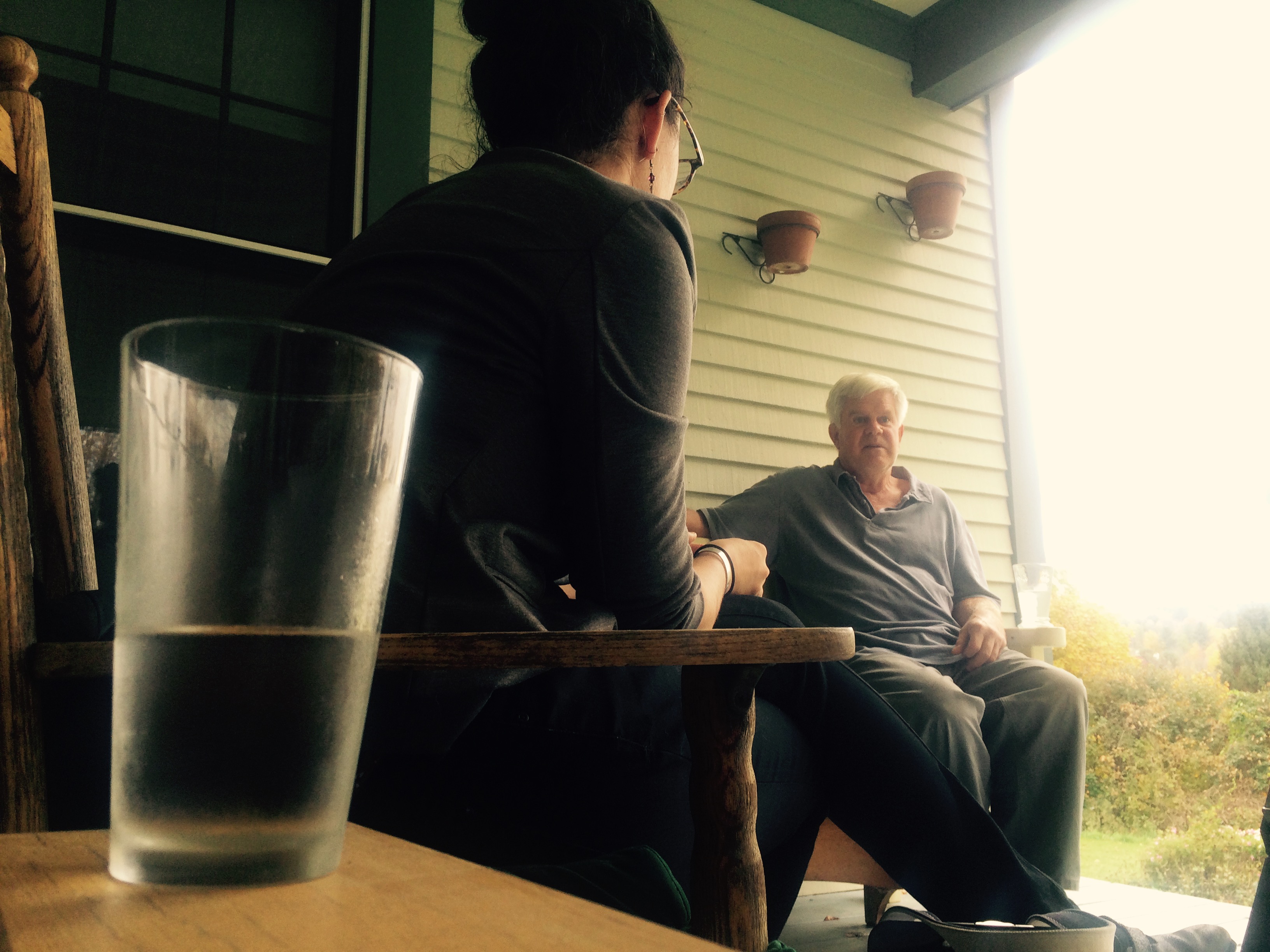 PFAS are called ‘forever’ chemicals because they don’t break down. They also cause kidney disorders, cancers, reproductive disorders and more. Vermont has a chance to make rules to keep our water safe from PFAS, and we need to make sure these rules are as strong as they can be.
PFAS are called ‘forever’ chemicals because they don’t break down. They also cause kidney disorders, cancers, reproductive disorders and more. Vermont has a chance to make rules to keep our water safe from PFAS, and we need to make sure these rules are as strong as they can be.
Right now, the proposed rules aren’t strong enough. The rules would only cover five of the thousands of PFAS chemicals. Experts say the limit for PFAS allowed in our drinking water should be 1 part per trillion, but these are 20 times that!
Send a letter today to tell the Department of Environmental Conservation that you want the strongest, science-based rules possible on PFAS water contamination.
-
Stop dirty biomass subsidies in NH
 Burning wood for energy pollutes the air we breathe. But the New Hampshire legislature could subsidize polluting biomass, especially wood burning, with a vote next week. You can help stop it.
Burning wood for energy pollutes the air we breathe. But the New Hampshire legislature could subsidize polluting biomass, especially wood burning, with a vote next week. You can help stop it. Living next to a biomass incinerator has devastating health effects. People who live near these polluters are at a higher risk for asthma, heart disease and cancer just from breathing the air. And of course, incineration releases more carbon at a time when we need to be doing everything we can to prevent the worst effects of climate change.
This bill has already been vetoed. But the legislature is trying to revive it, and that’s why your representatives need to hear from you.
Send a letter to your legislators today to stop a plan to subsidize polluting energy before the vote next week.
-
Stop a Fracked Gas Power Plant in Killingly, CT
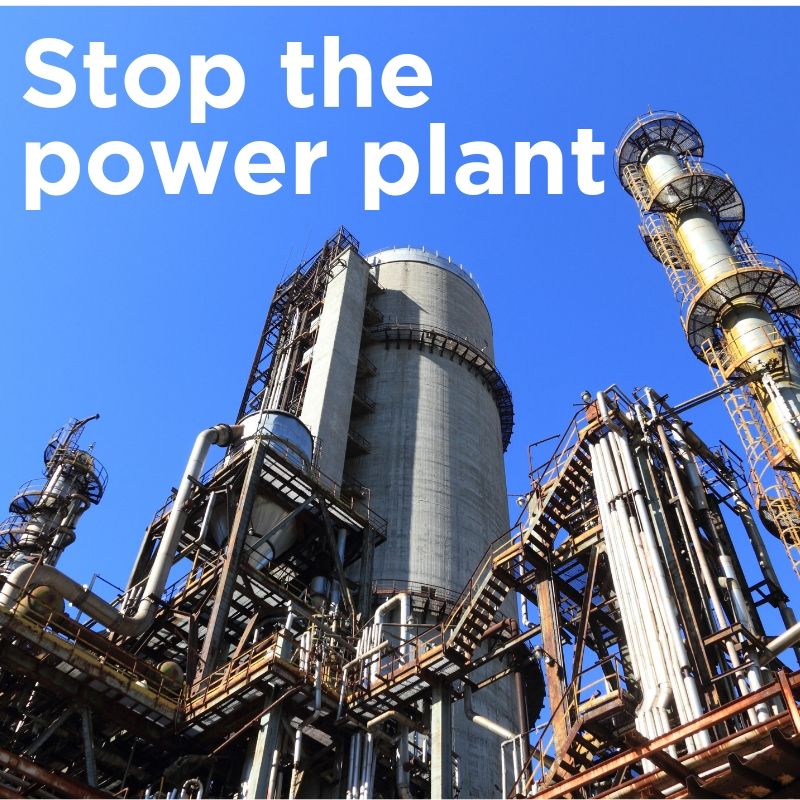 Fracked gas is bad for our health and bad for our climate. The proposed gas-fired power plant would release toxic chemicals into the air that are known to cause cancers, heart disease, and other major health concerns. And it’s time for our state to transition to clean, local renewable energy to protect our climate.
Fracked gas is bad for our health and bad for our climate. The proposed gas-fired power plant would release toxic chemicals into the air that are known to cause cancers, heart disease, and other major health concerns. And it’s time for our state to transition to clean, local renewable energy to protect our climate.
The Connecticut Siting Council has approved the power plant’s application to build a 650 megawatt fracked gas power plant. But this fight isn’t over. Governor Lamont could stop this fracked gas plant in its tracks, but he needs to hear from you.
Your voice matters. Stand in solidarity with Killingly neighbors and send a letter to Governor Lamont today.
-
Governor Mills: Stop pesticides in Maine
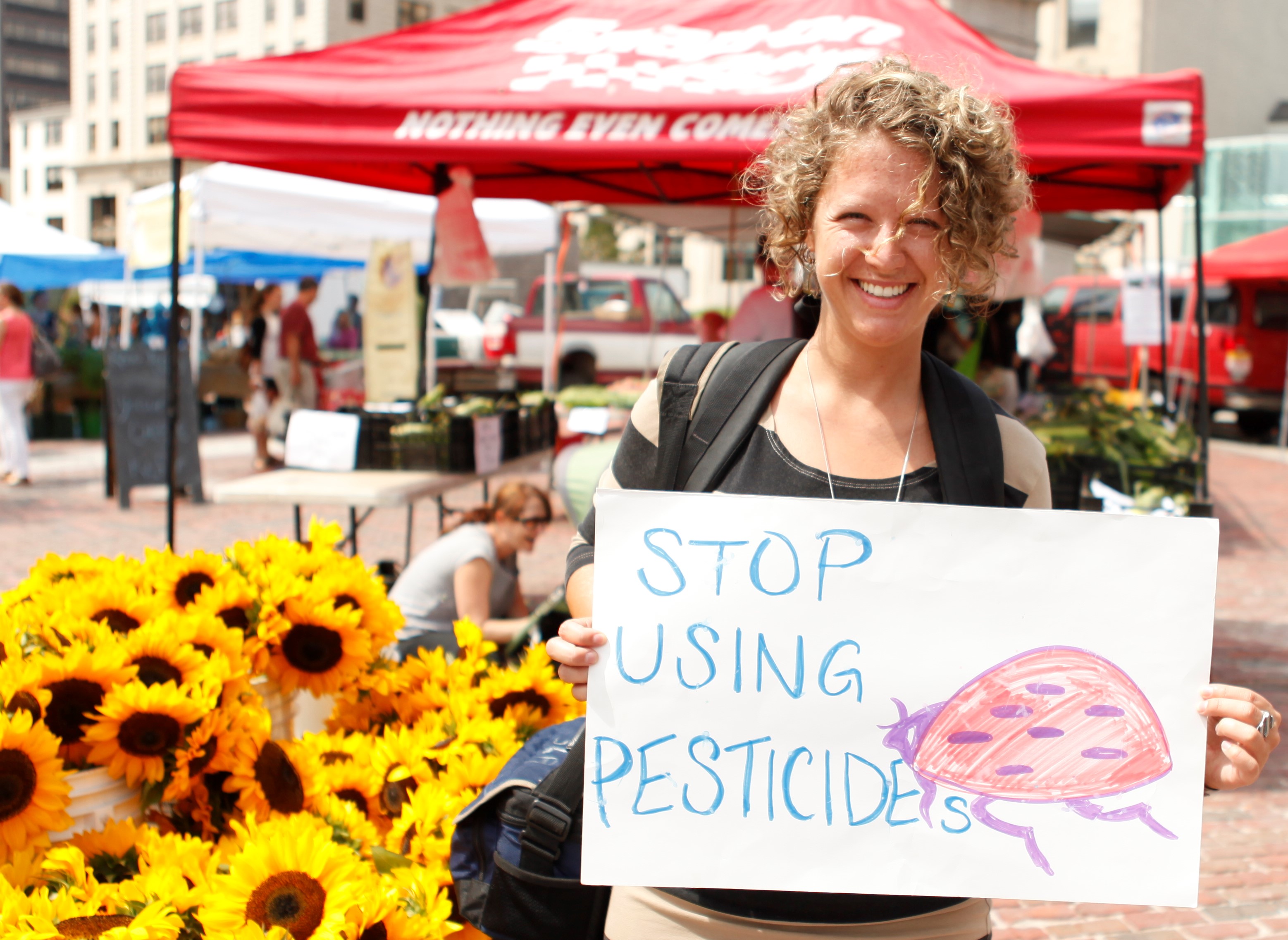 Pesticides harm more than just weeds and pests—they harm kids, bees and lobsters and all kinds of living things.
Pesticides harm more than just weeds and pests—they harm kids, bees and lobsters and all kinds of living things. We need Governor Mills to stand with communities across the state banning pesticides across the state—such as Portland, South Portland, Camden and Scarborough—and make stopping pesticides a priority. Send a letter today!
-
Set a Strong Standard for PFAS in Massachusetts
We need strong state drinking water standards to keep the toxic Teflon chemical out of our drinking water.
There are no federal or state drinking water rules for PFAS, meaning there’s no requirement to test for this class of toxic chemicals or clean them up where they’re found.
Submit a comment below to tell MassDEP to adopt drinking water standards that will protect public health and keep our drinking water safe. If you’ve been affected by PFAS water contamination, please edit the comment below and share your personal story.
-
Keep Michael Vose off Site Evaluation Committee
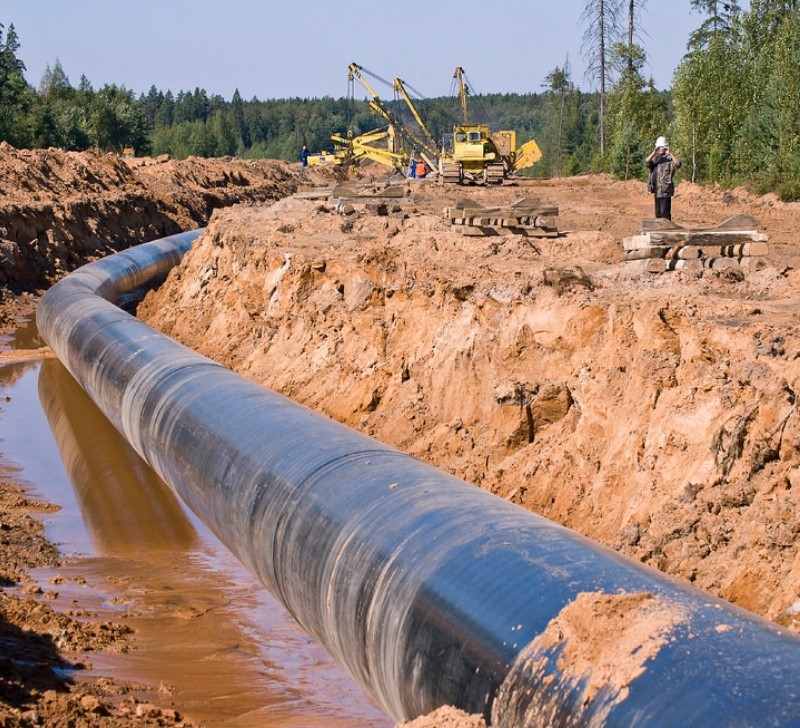 Governor Sununu nominated a climate skeptic to be part of the group that approves or denies fossil fuel projects.
Governor Sununu nominated a climate skeptic to be part of the group that approves or denies fossil fuel projects.
Michael Vose’s record shows that he will support dangerous, dirty energy projects over clean, renewable energy. He has supported the Granite Bridge pipeline and trash incineration—including burning dangerous construction and demolition waste—while voting against energy efficiency and subsidies for renewables.
Now, Vose has been nominated to the Site Evaluation Committee, which reviews fossil fuel projects in our state. Send a letter to the Executive Council today to urge them to keep Vose off the Site Evaluation Committee.
- Your Arc Code: TAC3-SENG:CLEANENERGY-1218+EM7:00L:0BH-OPE TAC
-
Get the Lead Out of Mass. Schools
 When kids in Massachusetts go to school, they could be drinking water contaminated with lead. We can change that.
When kids in Massachusetts go to school, they could be drinking water contaminated with lead. We can change that.
Governor Baker can take action to get the lead out of schools by including funds to remove lead pipes in the state’s budget for 2019.
Send a letter today to tell him you support safe, lead-free drinking water for all!
-
Stop the Coventry Landfill Expansion
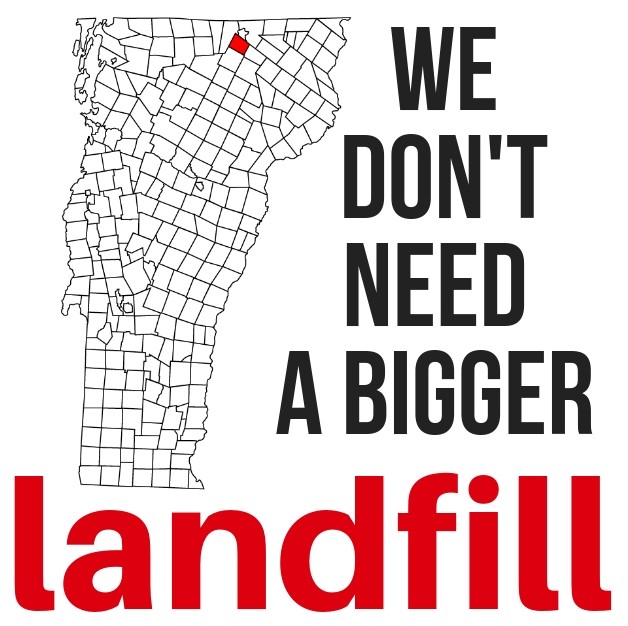 All landfills leak, and that means toxics like arsenic, lead, manganese and PFAS can end up in our drinking water.
All landfills leak, and that means toxics like arsenic, lead, manganese and PFAS can end up in our drinking water.
Landfills also release the greenhouse gas methane, which is 86 times more potent than carbon dioxide in exacerbating climate change.
Tell the Agency of Natural Resources to reject this expansion and keep our state moving forward. Our state has worked hard to make progress to protect our health and climate. Let’s not turn back the clock.
-
Stop SB365: No Subsidies for Biomass and Trash Incineration in New Hampshire
 Incinerators are the biggest air polluters in nearly half of New Hampshire’s counties, spewing toxics like lead, dioxin and mercury into the air we breathe. These toxics put us at risk for cancer, asthma, and other serious diseases.
Incinerators are the biggest air polluters in nearly half of New Hampshire’s counties, spewing toxics like lead, dioxin and mercury into the air we breathe. These toxics put us at risk for cancer, asthma, and other serious diseases.
Send a letter to your legislators to urge them to stop subsidies to biomass and trash incinerators!
If you live in Grafton, Coos, Carroll Sullivan, or Merrimack counties, here are some facts to add into your letter:
- In Grafton County, biomass incinerators are three of the four largest air polluters, responsible for 65% of industrial air emissions.
- In Coos County, biomass incinerators are the two biggest air polluters, responsible for 73% of industrial air emissions.
- In Carroll County, a biomass incinerator is the biggest air polluter, responsible for 95% of industrial air emissions.
- In Sullivan County, a biomass incinerator is the biggest air polluter, responsible for 56% of industrial air emissions.
- In Merrimack County, the trash incinerator in Concord is the county’s second biggest air polluter.
- In Grafton County, biomass incinerators are three of the four largest air polluters, responsible for 65% of industrial air emissions.
-
Protect Vermont: Strengthen Our Land Use Law
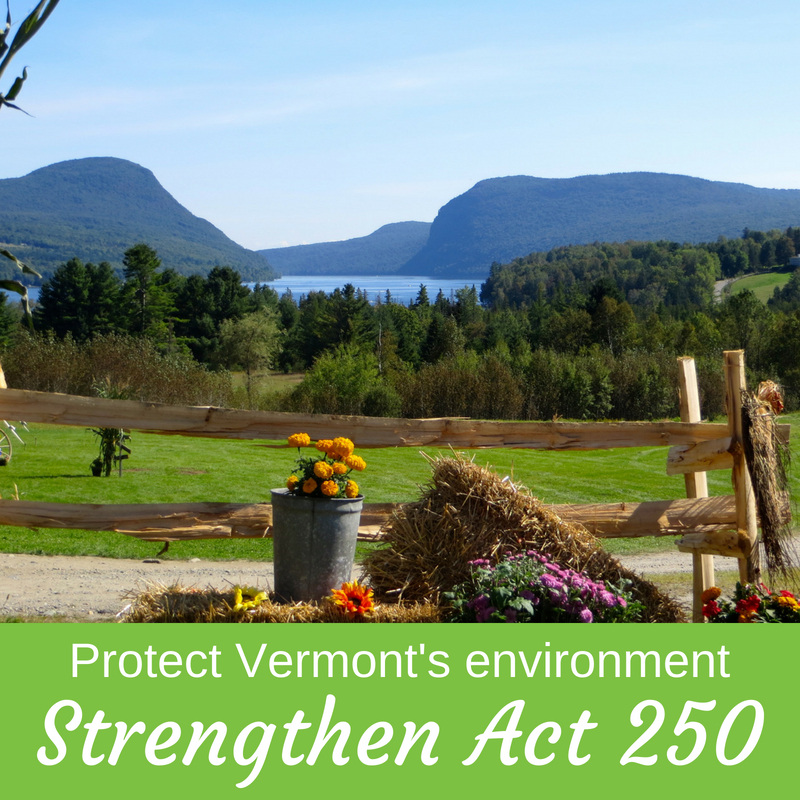 Act 250 is under review and it’s our chance to make this important land use process stronger to better protect our communities and environment.
Act 250 is under review and it’s our chance to make this important land use process stronger to better protect our communities and environment.
Below we’ve listed some recommendations to strengthen protections, shift towards clean energy, and make the appeals process more accessible to all.
Please add your own experience with Act 250 and your thoughts on how this important law can be improved.
- test targeting for UNITIL
-
Protect Vermont from Big Polluters
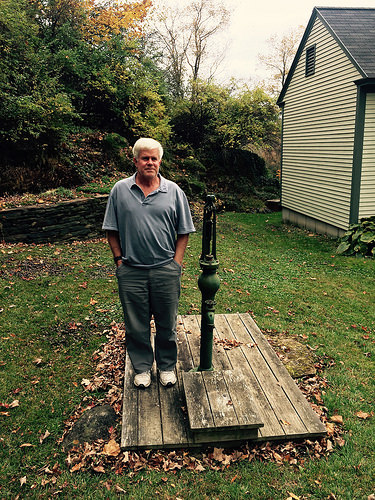 No one should have to worry if the water coming out of their tap is safe to drink. Yet communities across Vermont, including hundreds of families in Bennington, learned recently that their water is contaminated with PFAS, the toxic Teflon chemical linked to kidney disorders, cancer and more.
No one should have to worry if the water coming out of their tap is safe to drink. Yet communities across Vermont, including hundreds of families in Bennington, learned recently that their water is contaminated with PFAS, the toxic Teflon chemical linked to kidney disorders, cancer and more. That’s why we’re calling on the state to stand strong against big polluters and to uphold Vermont’s stronger drinking water standards of these chemicals.
Send a letter to tell our state to stand strong and protect us from big polluters.
-
Reject the Coventry Landfill Expansion
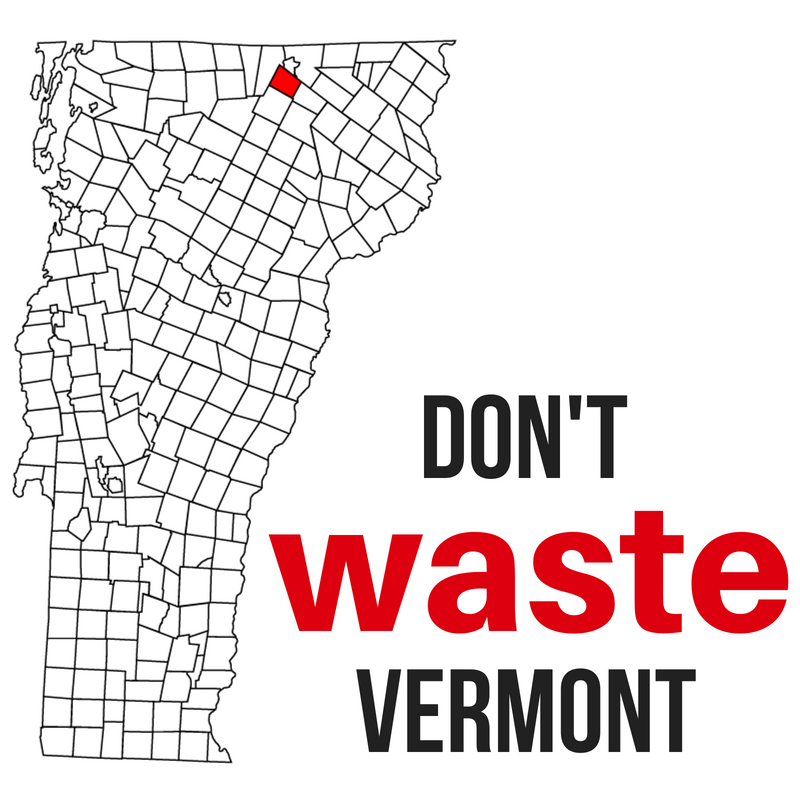 The Coventry Landfill in Vermont is seeking approval for a 51 acre expansion, and we need you to speak out.
The Coventry Landfill in Vermont is seeking approval for a 51 acre expansion, and we need you to speak out.
Landfills threaten our water and climate. All landfills do two dangerous things: leak toxins from waste into water, and release the potent greenhouse gas methane. In turn, our health and environment are at risk.
Vermont doesn’t need more landfilling. Our state has made impressive progress to recycle and compost, meaning we should be reducing our reliance on bad waste management practices instead of expanding them.
Send a letter to the Department of Environmental Conservation and urge them to reject the landfill expansion. Our state has worked hard to make progress on waste. Let the DEC know you want to keep us moving forward.
-
Countdown for Climate, Energy and Justice
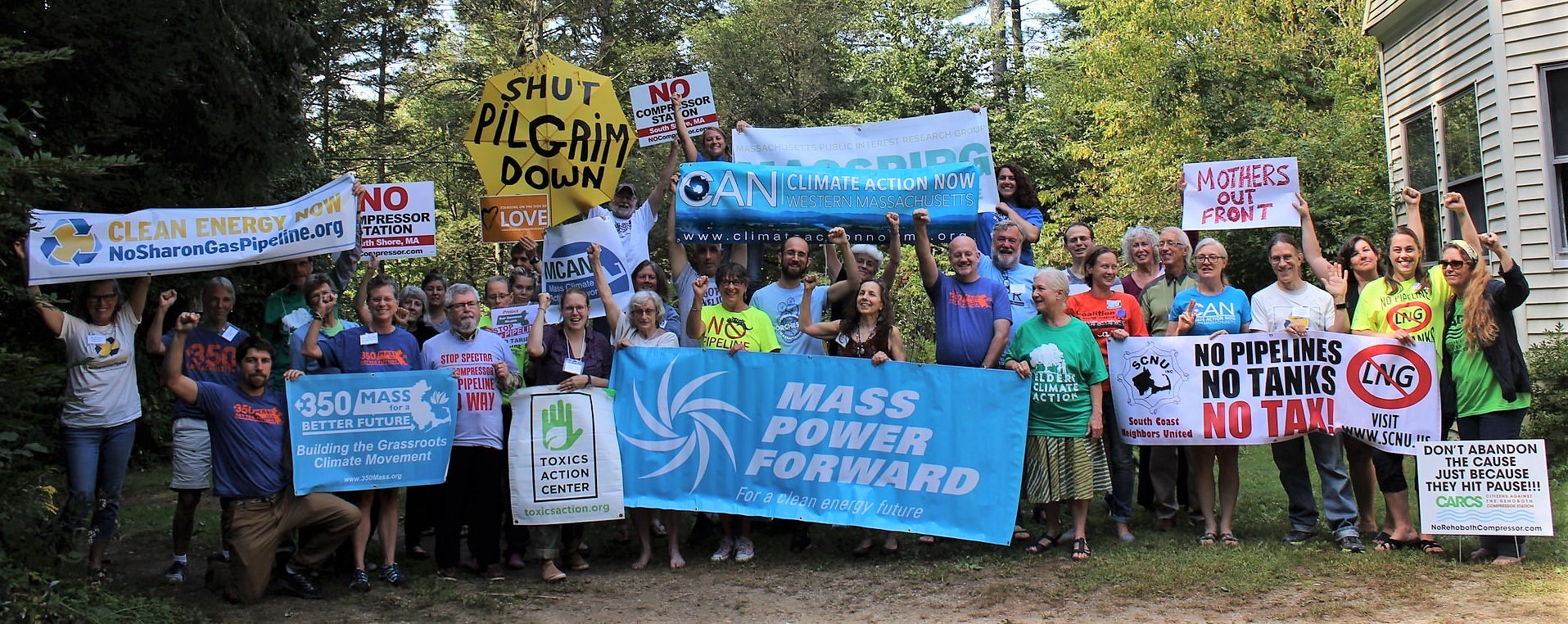
Massachusetts is vulnerable to climate change. We are nearing the end of the legislative session- with so much still to do! The good news: some elected officials are pushing to move clean energy forward! Be a climate champion: write to Beacon Hill and urge your legislators to take action on clean energy this year!
-
No Burning of our Waste in the Granite State
 Every day Wheelabrator’s incinerator burns 500-600 tons of garbage in Concord. More than 3 million tons of trash have been burned in Concord since the incinerator opened in 1989. The toxic emissions from burning trash do not magically disappear. They accumulate and pollute our air and impact our health.
Every day Wheelabrator’s incinerator burns 500-600 tons of garbage in Concord. More than 3 million tons of trash have been burned in Concord since the incinerator opened in 1989. The toxic emissions from burning trash do not magically disappear. They accumulate and pollute our air and impact our health.Wheelabrator’s Title V Air Permit expired in 2014. Now, they have applied for a new permit, which could burn construction and demolition debris (C&D). Burning this type of waste was banned a decade ago! This is the first place in NH that could burn C&D waste and would set a dangerous precedent.
Burning waste is unhealthy and unnecessary. We have other alternatives to burning our waste that are healthier for our bodies and better for our environment. Join us to call on the Department of Environmental Services (DES) to deny the Title V Permit. We want to transition to sensible and healthy solutions and away from burning or burying our waste.
The DES has scheduled a public hearing on Wheelabrator’s permit for the evening of Tuesday, November 7th at 6:00 at NH Department of Health and Human Services and Environmental Services Building, 29 Hazen Drive, Concord. (Please plan on arriving at 5:30) We hope you can come!
But if you can’t, DES will also accept public comments until that date. Please edit the note below as much as you wish, and hit send!
-
No Bees, No Food
 As we shop for food for our families' holiday dinners, we have a right to know grocery stores are doing everything they can to protect the providers of that food: bees. We rely on bees to pollinate 1 out of every 3 bites of food!
As we shop for food for our families' holiday dinners, we have a right to know grocery stores are doing everything they can to protect the providers of that food: bees. We rely on bees to pollinate 1 out of every 3 bites of food!Send a message to the CEOs of Trader Joe's and Stop & Shop asking them to do their part.
To: Dan Bane, CEO Trader Joe's and Carl Schlicker, CEO Stop & Shop
-
Clean Air for New Hampshire
Coal is one of the dirtiest ways to make electricity. For decades communities on the sea coast and Merrimack Valley have lived with the smokestacks of coal-fired power plants. Those plants are going to be auctioned off to the highest bidder. Toxics Action Center has seen old coal fired power plants be bought up and new owners try to re-fire them as trash incinerators. Enough is enough. Join us in calling for clean, local redevelopment or closing.
-
One Region. No More Subsidies for Dirty Energy.
 On Wednesday morning, it became illegal in Massachusetts for regulatory agencies to force ratepayers into subsidizing fracked gas projects.
On Wednesday morning, it became illegal in Massachusetts for regulatory agencies to force ratepayers into subsidizing fracked gas projects. Companies like Spectra and Kinder Morgan have been counting on propping up their risky projects with handouts from all of us. Let's make sure every single Governor in New England hears our voices today.
We're one region, united. No more subsidies for dirty energy -- and no more fracked gas.
-
No More Mess: Stop the Vermont Gas Pipeline Project
 Last month, Vermont Gas Systems announced that the expected costs for its fracked gas pipeline project have nearly doubled, spiraling above $165 million. The company is also facing serious allegations that it has violated its wetlands permit.
Last month, Vermont Gas Systems announced that the expected costs for its fracked gas pipeline project have nearly doubled, spiraling above $165 million. The company is also facing serious allegations that it has violated its wetlands permit.These announcements make clear that besides undermining Vermont's commitment to reducing climate pollution, the pipeline project has been deeply mismanaged and is a bad investment for current and future ratepayers.
It's time to quit while we're head, and before any more environmental destruction occurs. Please, urge the Vermont Public Service Board to review the Vermont Gas pipeline project -- and then to shut it down in favor of clean energy and climate progress.
-
Make Toxic Trash Incineration As Safe As Possible
 In 2007, the state of New Hampshire banned the incineration of construction and demolition waste -- for good reason. Construction debris frequently contains lead and other toxic chemicals that threaten public health.
In 2007, the state of New Hampshire banned the incineration of construction and demolition waste -- for good reason. Construction debris frequently contains lead and other toxic chemicals that threaten public health.Unfortunately, the NH ban on burning construction and demolition waste has been overturned, and the Department of Environmental Services (DES) is now writing rules for incinerators that handle these materials.
We know that construction & demolition waste incineration pollutes the air and harms the health of nearby residents. (Even though all too often, the trash itself has been imported from out of state.) Please, use the email form below to urge DES to make the new rules as strong as possible to protect New Hampshire and its residents.
-
Tell Your State Reps & Senators: Stay Strong for Clean Energy!
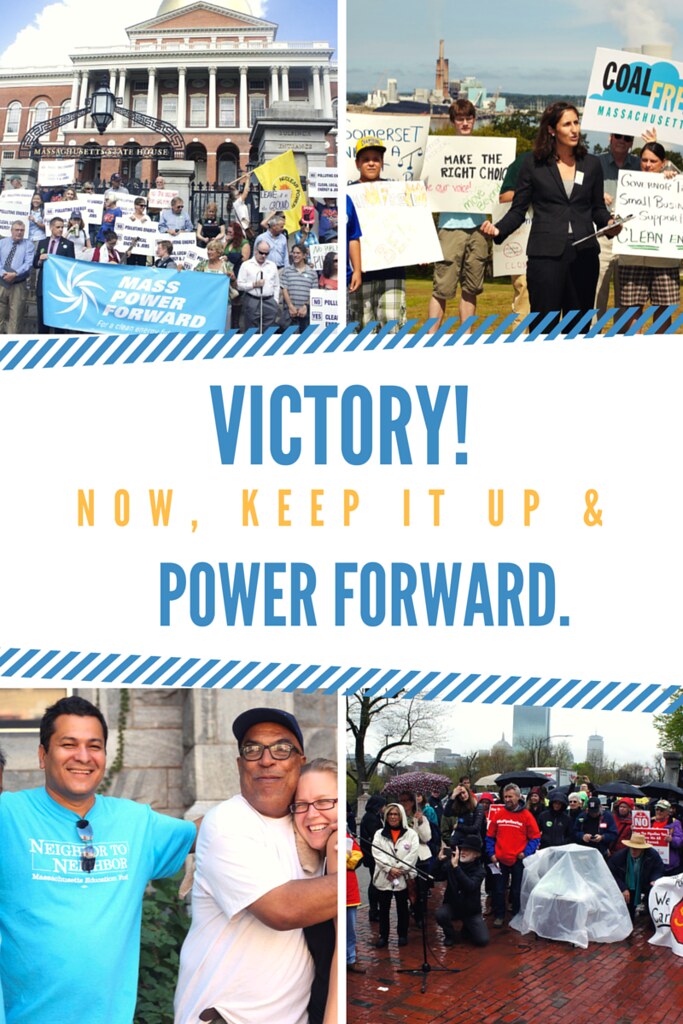 The Massachusetts Senate has passed an energy bill that is as close as we've come to a clean energy mandate. The bill ensures no Massachusetts resident will be taxed to help build fracked gas pipelines and requires the state to obtain almost 40% of its electricity from renewables by 2030, much of which will come from offshore wind.
The Massachusetts Senate has passed an energy bill that is as close as we've come to a clean energy mandate. The bill ensures no Massachusetts resident will be taxed to help build fracked gas pipelines and requires the state to obtain almost 40% of its electricity from renewables by 2030, much of which will come from offshore wind.Now, the House and Senate bills go back to committee to be finalized -- so we need to make sure today's victories remain in place throughout the rest of the process. Please, email your Senators and Reps and tell them to protect serious commitments to clean energy and offshore wind, and to a ban on any pipeline tax!
-
Protect Fern Lake from Toxic Herbicides!
The Lake Dunmore Fern Lake Association intends to treat Fern Lake with the herbicides SePRO Renovate 3 and Renovate OTF this Wednesday, June 15th beginning at 8am.
As guardians and stewards of the Fern Lake reservoir and its environs, we need a chance to better understand the risks of this chemical application. Please, sign below to urge the Lake Association and the Vermont Agency of Natural Resources' Department of Environmental Conservation to postpone herbicide treatment until a transparent community conversation can occur.
-
Be Bold: Ban the Pipeline Tax and Go Big on Clean Energy
 After months of tireless work (and waiting!) by grassroots community leaders, the state legislature is finally considering a comprehensive energy bill.
After months of tireless work (and waiting!) by grassroots community leaders, the state legislature is finally considering a comprehensive energy bill. The House is expected to vote on this critical piece of legislation tomorrow. Please, email your representatives urging them to ban the pipeline tax and strengthen the bill's clean energy provisions.
-
Tell Governor Hassan: Toxic Trash Incineration Is Not Ok
 In 2007, the state of New Hampshire banned the incineration of construction and demolition waste -- for good reason. Construction debris often contains lead and other toxic chemicals that threaten public health. When burned, these hazardous materials pollute the air and harm the health of nearby residents.
In 2007, the state of New Hampshire banned the incineration of construction and demolition waste -- for good reason. Construction debris often contains lead and other toxic chemicals that threaten public health. When burned, these hazardous materials pollute the air and harm the health of nearby residents.Today, industry interests and state legislators are trying to lift the ban, endangering New Hampshire communities and opening the state up as a regional dumping center for burying and burning waste.
It wasn't ok in 2007, and it's not ok now. Any rollback of the ban is unnacceptable. Please, send a letter below urging Governor Hassan to stop this disastrous reversal in its tracks.
-
Stand up for a Stronger, More Just Regional Greenhouse Gas Initiative
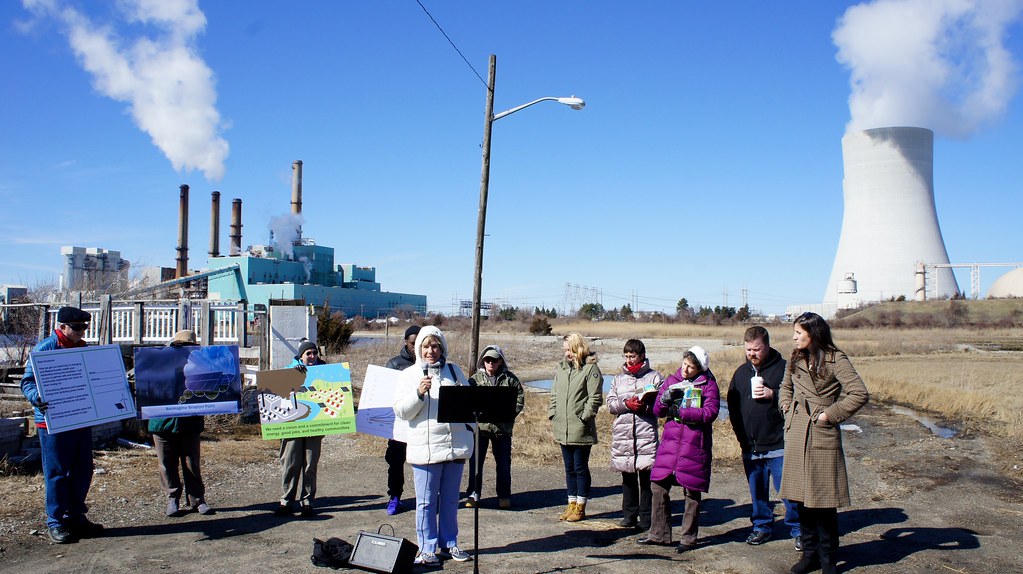
New England has a chance to reduce power plant pollution more quickly than ever before, for everyone -- but our governors and state agencies have to act now.
The Regional Greenhouse Gas Initiative (RGGI), which limits global warming pollution from power plants in nine states, is in the final stages of a program review.
We need our governors and state agencies to use this review to reduce power plant pollution as quickly as possible, setting a cap on pollution that goes down by 5% every year. And we need them to guarantee the people hurt the most by dirty energy and climate change will benefit from RGGI and have a real say in how it works - especially communities facing environmental injustices.
This is a chance to clean up the air, protect our climate, and get cleaner power, for everyone. Use the form below to urge your Governor and the RGGI Board of Directors to stand up for a stronger, more just RGGI in the final stretch of the program review.
-
We’ve been behind the “C8” ball for too long.
 We’ve been behind the “C8” ball for too long. When Hoosick Falls, New York, and North Bennington, Vermont both did testing for their groundwater we stayed quiet. We thought Chemfab was there for us.
We’ve been behind the “C8” ball for too long. When Hoosick Falls, New York, and North Bennington, Vermont both did testing for their groundwater we stayed quiet. We thought Chemfab was there for us.
But they let us down. Our drinking water is contaminated too!
In Vermont, they are working with Saint Gobain -- the parent company of Chemfab -- to come up with a community advisory board. We think this is the best option for us in Merrimack as well. -
TEST
Plastic bags are awful.
-
Protect North Bennington Families: Demand More Blood Draws

As North Bennington parents, all we've thought of since learning about local drinking water contamination is our children. We have to live every day knowing they grew up drinking water contaminated by PFOA, a toxic chemical.
At the time, we didn’t know the water we gave them at dinner or mixed with their baby formula was tainted. But we know now, and we owe it to our kids to get their blood tested.
Unfortunately, many of our children are in college, or, like workers and other city members, have recently moved away and can't access the blood draws that are currently being offered.
Please, stand with us and use the form below to ask the State of Vermont and the Centers for Disease Control to provide testing options that accomodate students, workers, and any other community member who is eligible for testing but has moved away from North Bennington in recent years.
-
Let's Protect Bees in Mass.

Last year, more than 3,000 beekeepers across the state worked together to create a plan for protecting pollinators. Instead of listening to beekeepers, the Mass. Department of Agriculture Resources (MDAR) followed the lead of pesticide industry lobbyists instead. Now, the state's proposed plan to "protect bees" does little to reduce toxic pesticide use and ignores other beekeeper recommendations.
Tell the MDAR to stand with the bees and the beekeepers -- not with the pesticide industry.
-
Protect Vermont from Risky Industrial Discharge Practices: Tell the State to Strengthen Its Groundwater Rules
 Vermont's draft groundwater protection rule allows companies and private property owners to pollute precious public resources. And it does too little to regulate industrial wastewater discharges. Agri-Mark Dairy, for example, is allowed to spray chemically-laced wastewater on farmlands near dozens of towns in North-Central Vermont.
Vermont's draft groundwater protection rule allows companies and private property owners to pollute precious public resources. And it does too little to regulate industrial wastewater discharges. Agri-Mark Dairy, for example, is allowed to spray chemically-laced wastewater on farmlands near dozens of towns in North-Central Vermont. This is unacceptable. Contribute to the letter below or simply sign your name to tell the state it needs to protect natural resources that are in the public trust, like groundwater, especially from risky discharge practices.
-
Share Your Climate Story. Galvanize Action in Paris.
 This autumn, the entire world is preparing for the United Nations Conference on Climate Change in Paris. We're at a critical juncture, and it's crucial that New Englanders tell our elected leaders that dirty energy and climate change are altering our everyday lives.
This autumn, the entire world is preparing for the United Nations Conference on Climate Change in Paris. We're at a critical juncture, and it's crucial that New Englanders tell our elected leaders that dirty energy and climate change are altering our everyday lives. The climate and energy stories that reach American lawmakers are often abstract, focused on distant futures or distant places. But ordinary people everywhere are already suffering from the painful effects of the fossil fuel economy.
We know that this includes folks right here at home -- like Pauline Rodrigues in Somerset, Mass., who has lived just a few blocks from two coal-fired power plants for the last five decades.
Pauline breathes in soot and smog everyday. What's your fossil fuel or climate story? Does pollution from a coal-burning power plant threaten the health of your children? Have you suffered property damage and losses because of unusual and extreme weather events? Is your family heritage or livelihood threatened by a future where Maine has no lobsters?
Please, tell your story. Our U.S. Senators and Representatives need to understand that fossil fuels are causing pain right now, for the people they represent. New England and the United States must be leaders on climate change action in Paris and on the global transition to a clean and just economy.
Add your story to the letter below - or simply sign on in support of real climate action in Paris and a zero-carbon future.
-
Protect Medway: Stop the Exelon Peaker Power Plant Expansion

The proposed expansion of the Exelon Peaker Power Plant in Medway poses a serious threat to the air we breathe, the water we drink, the environment in which we live and the safety of our community and surrounding towns. Tell the Medway Board of Selectmen to voice their strong opposition to this project to the Massachusetts Energy Facilities Siting Board and to do everything in their power to stop the expansion.
-
Protect the Commonwealth: Ask your Legislators to Close Pilgrim, on Entergy's Dime
Pilgrim Nuclear is one of the three most dangerous operating reactors in the country. This legislative session, our elected officials have opportunities to protect the Commonwealth from nuclear disaster and from the extraordinary financial costs associated with Pilgrim's inevitable closure.
Now is the time to begin laying the groundwork for the safest possible decommissioning and for a just transition for workers and communities.
Send your Senators and Representatives the message: close Pilgrim, and do it on Entergy's dime.
-
We won't pay for pipelines
Governor Baker's administration is trying to add a charge to our electricity bills to cover the costs of massive new gas pipelines.

Tell the Governor no way -- we won't pay.
This is an outrageous proposal and would be an unprecedented giveaway to the fossil fuel industry. We need to stand up and speak out now, before we find ourselves paying billions for fossil fuel pipelines we don't want and don't need!
We Pay -- They Profit
If Charlie Baker's sneaky pipeline plan goes forward, the people of Massachusetts will be forced to spend as much as $8 billion on new gas pipelines. That’s great news for Kinder Morgan and Spectra, the two Texas-based fossil fuel companies that stand to profit from massive new gas infrastructure projects.But it’s bad news for the rest of us. Instead of spending billions on new pipelines and deepening our dependence on natural gas, which already provides more than 60% of our electricity, we should be diversifying our energy sources by investing in clean energy like wind and solar.
We Shouldn't Pay for Export Pipelines
Fossil fuel companies are eager to export gas to places like Asia and Europe where prices are higher, and the proposed pipelines connect to new gas export terminals in Maine and Nova Scotia. If we start exporting gas, prices here in Massachusetts will rise to match world market levels -- and our electricity bills will go up.
We Need Clean Energy, Not More Gas
Instead of spending $8 billion on risky and unnecessary fossil fuel infrastructure, we should focus on reducing demand and investing in clean energy.Join Us
We're uniting across the state to say with one voice: not on our bill!
-
Nuclear...clean? We can do better.
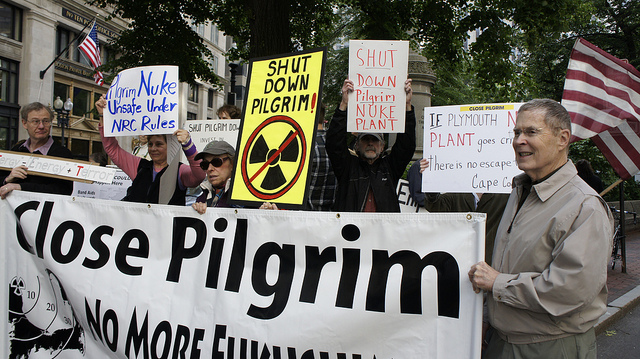 Massachusetts has set a goal of reducing global warming emissions by 80% and is developing a Clean Energy Standard to get there. However, the state is considering including nuclear as one of our "clean" options.
Massachusetts has set a goal of reducing global warming emissions by 80% and is developing a Clean Energy Standard to get there. However, the state is considering including nuclear as one of our "clean" options.
Nuclear operations, including what happens here in Massachusetts at Pilgrim Nuclear Power station, produce huge quanitites of highly toxic, radioactive waste. This waste is expected to be highly radioactive for hundreds of thousands of years. Right now, there isn't even a plan in place to store this waste beyond the next hundred years. Does that sound clean to you?
Department of Environmental Protection (DEP) Commissioner Martin Suuberg needs to hear from you: nuclear isn't clean! We can do better.
-
Stop the Pesticide Spray

Last year, NSTAR listened when residents made their voices heard through phone calls and petitions. We won a temporary moratorium on their pesticide spraying plans.
Cape Cod has sandy soil, leaving its only drinking water source vulnerable to contamination. We know pesticides can harm more than just their intended target, seeping into soil and water. Why risk contaminating the drinking water for thousands of residents and visitors?
Now that NSTAR is merging with Northeast Utilities, it’s urgent that we get our voices heard. We need to make the moratorium on spraying pesticides on Cape Cod permanent. Send a message to NSTAR CEO Tom May and Northeast Utilities CEO Chuck Shivery asking them to stop the spray for good.
-
PSEG needs a reality check
 Soot and smog from the Bridgeport coal-burning power plant contribute to the failing grade for air quality awarded to Fairfield County by the American Lung Association.
Soot and smog from the Bridgeport coal-burning power plant contribute to the failing grade for air quality awarded to Fairfield County by the American Lung Association.The coal plant is a lose-lose for PSEG: it is out of step with the company's green image, and it's actually losing money.
We've helped mobilize residents of Bridgeport and surrounding communities over the past year to call on plant owner PSEG to responsibly retire the coal plant, work with the city for redevelopment of the harbor-front site, and ensure a fair exit for all workers.
Help build support for this effort: Send an email to PSEG CEO Ralph Izzo asking him to walk the talk on his company's values in Bridgeport and make Bridgeport a healthier, more economically vibrant city.
-
Stop the CT Expansion: No more pipelines
 The proposed CT Expansion to the Tennessee Natural Gas Pipeline through Western Massachusetts would deepen our reliance on Natural Gas, cut down more precious conservation land, and force residents to surrender their property.
The proposed CT Expansion to the Tennessee Natural Gas Pipeline through Western Massachusetts would deepen our reliance on Natural Gas, cut down more precious conservation land, and force residents to surrender their property. We know that this expansion is unnecessary. We can meet our needs while protecting our communities and our environment by increasing efficiency and expanding renewable sources of energy.

